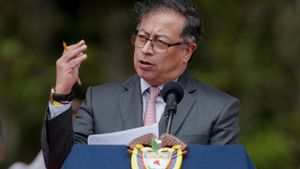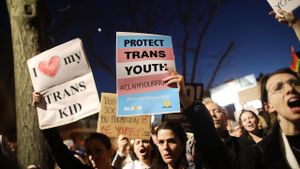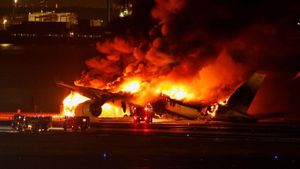The Iranian regime is under global scrutiny as international voices rise against the impending execution of two political prisoners, Behrouz Ehsani and Mehdi Hassani. The French Committee for a Democratic Iran has issued urgent calls to halt these executions following the unsettling transfer of the prisoners from Tehran’s Evin Prison to Ghezel Hesar Prison on January 26, 2025. This relocation has left human rights advocates deeply alarmed, serving as a prevalent signal of impending execution.
Behrouz Ehsani, 70, is known as a former political prisoner from the 1980s, whereas 48-year-old Mehdi Hassani is a father of three. Both men were arrested in 2022 and sentenced to death on September 16, 2024, under dubious charges including “moharebeh” (enmity against God) and “efsad-e-fel-arz” (corruption on earth). Despite outcry from international communities, Iran’s Supreme Court upheld their sentences on January 7, 2025. Amnesty International described these verdicts as politically motivated and called upon the Iranian regime to annul them, linking the sentences back to the prisoners’ affiliations with the opposition group, the People’s Mojahedin Organization of Iran (PMOI/MEK).
The French Committee for a Democratic Iran has stressed the urgency of their message, with President Jean-Pierre Brard stating, “Silence in the face of such a grave violation of human rights is unacceptable. Every hour counts in the fight to save these individuals.” Their plea for action finds resonance among many who are protesting within Iran; following the prisoners' transfer, fellow inmates demonstrated solidarity by chanting anti-regime slogans, conveying the rising dissent against the Iranian government.
On January 28, 2025, attention turned to the UK Parliament, where lawmakers and human rights activists convened at the conference titled “Iran: The Alarming Surge in Executions.” Organized by the Association of Former Political Prisoners, the meeting sought to spotlight the alarming rise of capital punishment under the current Iranian regime. Human rights activist Neda Zabeti delivered passionate remarks, emphasizing, “The number of executions taking place per year is reaching unprecedented levels as the Iranian regime continues to act with impunity.” Under President Masoud Pezeshkian, who is often described as ‘so-called reformist,’ Zabeti reported at least 774 executions since August 2024, marking an 85% increase compared to the previous year.
Zabeti criticized the Iranian government for wielding vague charges to justify these capital punishments: “UN experts have explicitly stated the death penalty as currently practiced in Iran amounts to unlawful execution.” She urged the UK government to take swift measures, advocating for the release and fair treatment of all political prisoners, particularly those affiliated with PMOI.
Baroness Nuala O’Loan condemned the Iranian judiciary, which she underscored as relying on forced confessions and mock trials. “Neither the judiciary nor these executions are about justice. They are tools of oppression, aimed at silencing dissent and crushing the democratic opposition,” she articulated. O’Loan called for prescribed actions, including designations of the Islamic Revolutionary Guard Corps (IRGC) as terrorists, and efforts to hold Iran accountable for its human rights violations.
During the session, British MP David Pinto-Duschinsky expressed his dismay at the climate of repression, stating, “What’s happening right now breaks my heart. We have a so-called moderate as president, yet we have hundreds of people being executed.” He reaffirmed support for the Iranian Resistance during the statements, highlighting, “What we want to see is a free Iran.” Meanwhile, Jim Shannon, Chair of the UK Parliament’s Freedom of Religion Group, called for the international accountability of those perpetrated actions against citizens who dare to defy the regime.
Former political prisoners drew from their traumatic experiences, sharing stories of torture and the continuous fear surrounding executions. Ahmad Ebrahimi, who survived the regime’s 1988 massacre, warned, “The Iranian regime uses executions as a tool to stay in power.” Another speaker, Jamshid Adhami, relayed chilling accounts of daily fears among inmates wondering if they would be next. He underscored the urgent need for Western intervention to hinge diplomatic relations on halting executions.
Facing mounting international outrage, the Iranian authorities seem undeterred. The sentiments echoed at the conference culminated with urgent appeals for immediate actions, including blacklisting the IRGC, halting all economic and political support for the Iranian government, and compelling Tehran to release all political prisoners. Baroness O’Loan summarised the sentiment of the conference starkly: “One day, Iran will be free. But to get there, the Iranian people need the support of the rest of the world.”
Behrouz Ehsani and Mehdi Hassani remain at the center of this crisis, representing not just political prisoners but the broader battle for human rights within Iran. The international community faces pressing questions of accountability and intervention as activists call for urgent global action to prevent their execution and bring unjust practices to light.



